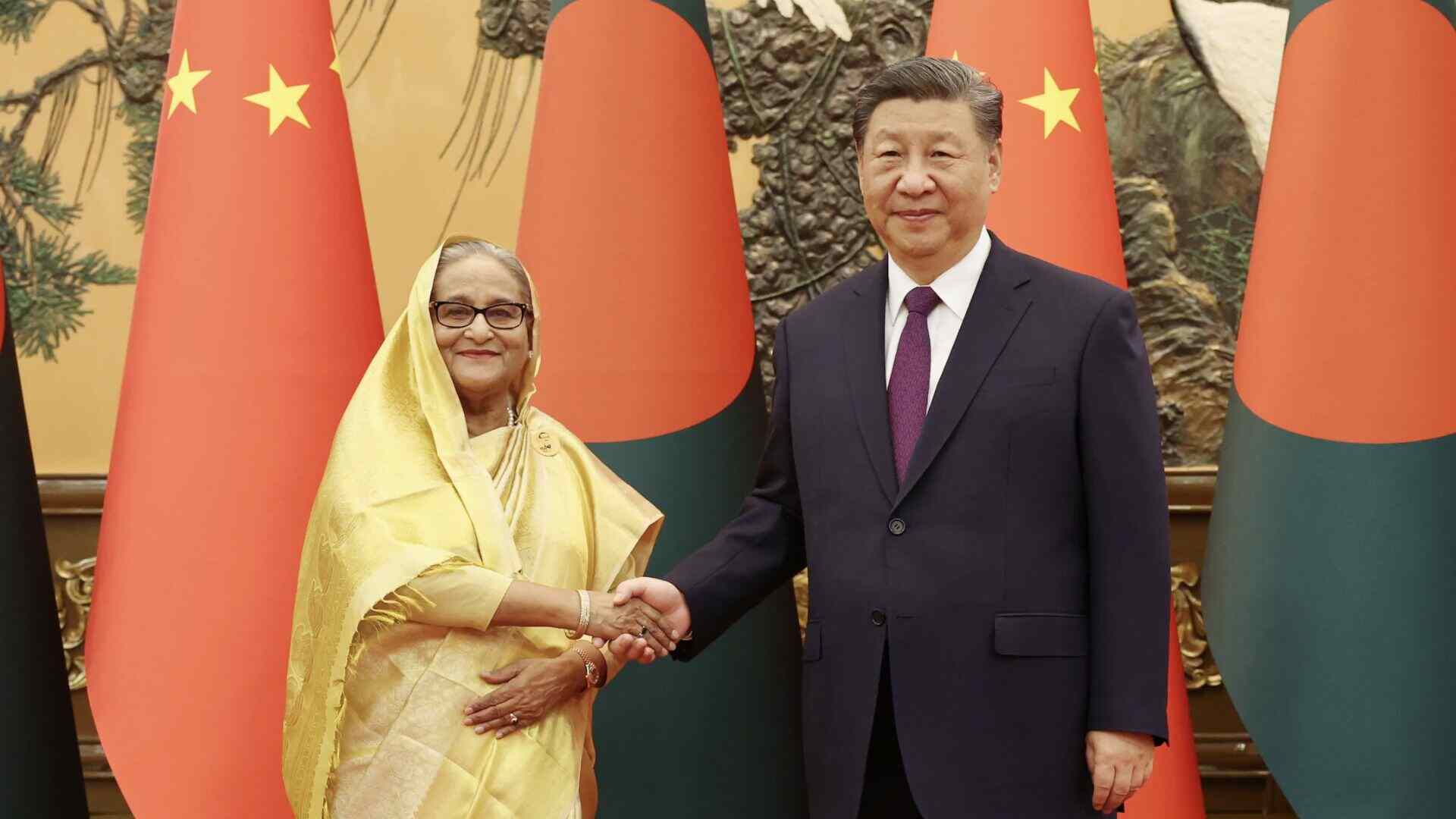Prime Minister Sheikh Hasina of Bangladesh returned home early from her trip to China, cutting short what was her fifth visit to the country as PM. Initially scheduled to leave Beijing on Thursday, July 11, Hasina departed on Wednesday night. This abrupt change in plans has sparked speculation that she did not achieve the desired outcomes from her visit.
During her trip, Hasina met with Chinese President Xi Jinping and Premier Li Qiang on July 10. The two nations signed 21 agreements, including the renewal of three Memorandums of Understanding (MoUs). These agreements elevated their relationship from a “strategic partnership” to a “comprehensive strategic cooperative partnership,” according to the Bangladesh Sangbad Sangstha (BSS).
Signed Agreements and Economic Aid
The bilateral talks between Hasina and Chinese leaders focused on various issues, including the Rohingya crisis, trade, investment, and regional matters. Among the signed agreements were those concerning trade, infrastructure development, and the export of agricultural products from Bangladesh. China committed to providing economic grants, interest-free loans, concessional loans, and commercial loans to Bangladesh.
Despite these agreements, Bangladesh was reportedly disappointed with the level of financial assistance. While China announced economic aid of 1 billion yuan ($137 million), Dhaka had hoped for more substantial support, expecting a $5 billion loan package, as per the Economic Times.
Discontent and Early Departure
Sources suggest that Hasina’s early return was influenced by dissatisfaction with the outcomes of her visit. She expected more extensive talks with President Xi but had only brief interactions, with Premier Li serving as the main interlocutor. Additionally, the lack of an official meeting with Chinese Foreign Minister Wang Yi and limited media coverage of her visit contributed to her decision to return early.
According to reports, Hasina cited her daughter’s health as the reason for her early departure, but insiders believe the unmet expectations and perceived lack of appropriate protocol played a significant role.
Bangladesh-China Relations
Bangladesh’s relationship with China has been characterized by significant economic and defense cooperation. China has been Bangladesh’s largest trading partner for 13 years, with investments reaching $3.2 billion last year. The two countries have collaborated on numerous infrastructure projects, including railways, highways, bridges, and power stations. Bangladesh joined China’s Belt and Road Initiative (BRI) in 2016, and defense ties have also grown, with China supplying military equipment to Bangladesh.
Despite this cooperation, the balancing act between China and India remains challenging for Bangladesh. The country has historical and cultural ties with India and has tried to maintain a neutral stance amidst rising geopolitical tensions in South Asia and the Indo-Pacific region.
Future Prospects and Challenges
The evolving geopolitical landscape presents complex issues for Bangladesh, including regional security, water rights, and economic integration. While economic cooperation with China has brought development benefits, it has also raised concerns about debt dependency and strategic vulnerability. As Bangladesh navigates these challenges, maintaining balanced relations with both China and India will be increasingly difficult.
The early conclusion of Hasina’s visit to China highlights the delicate nature of international diplomacy and the significant expectations placed on bilateral engagements. As Bangladesh continues to develop its strategic partnerships, the outcomes of such high-level visits will remain crucial to its foreign policy and economic development.







